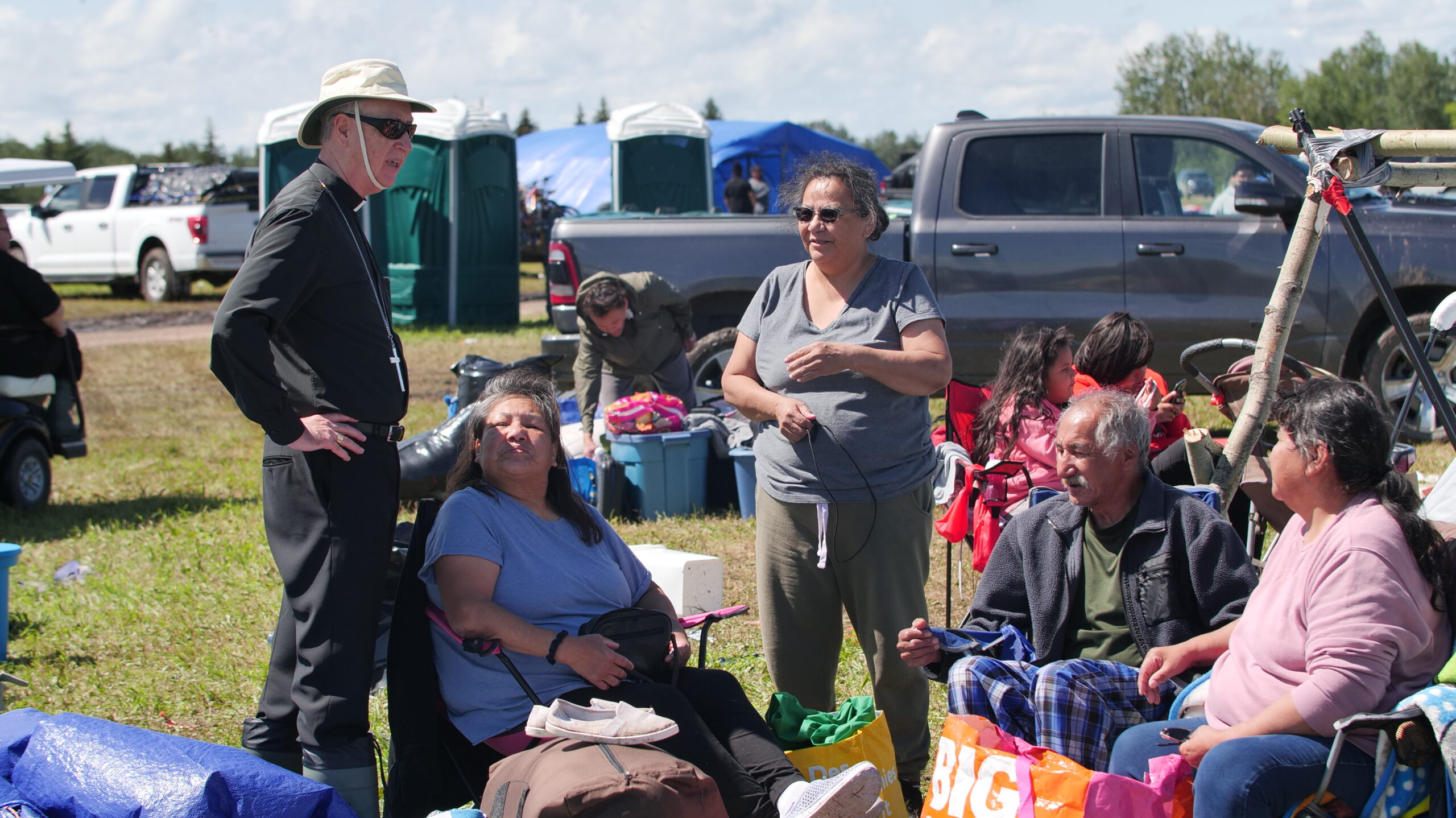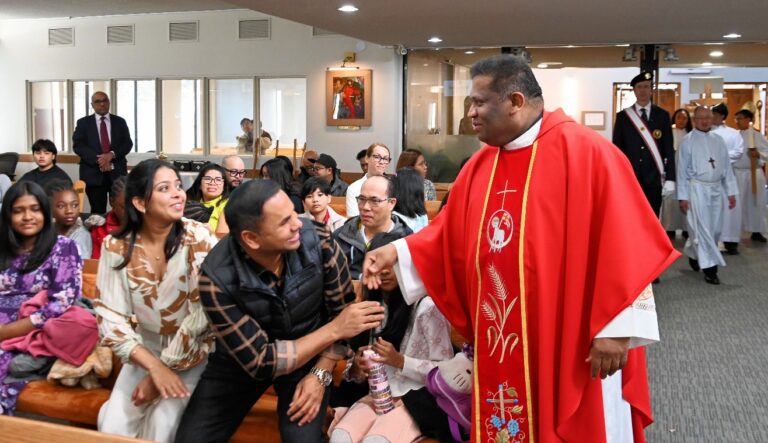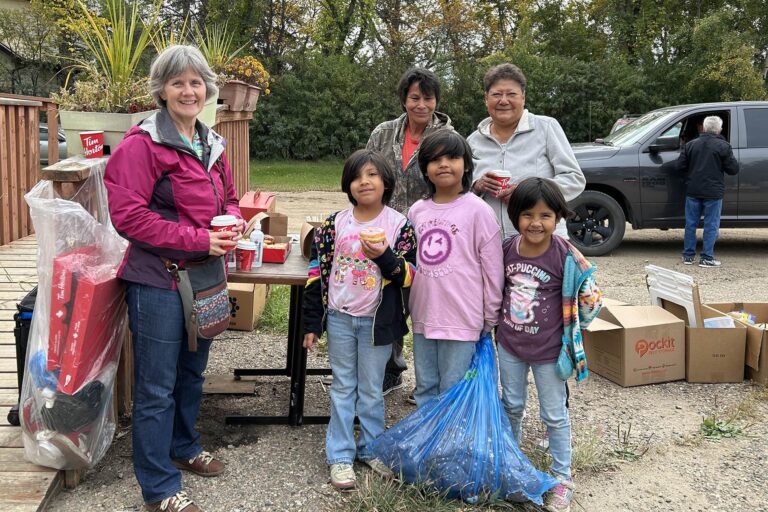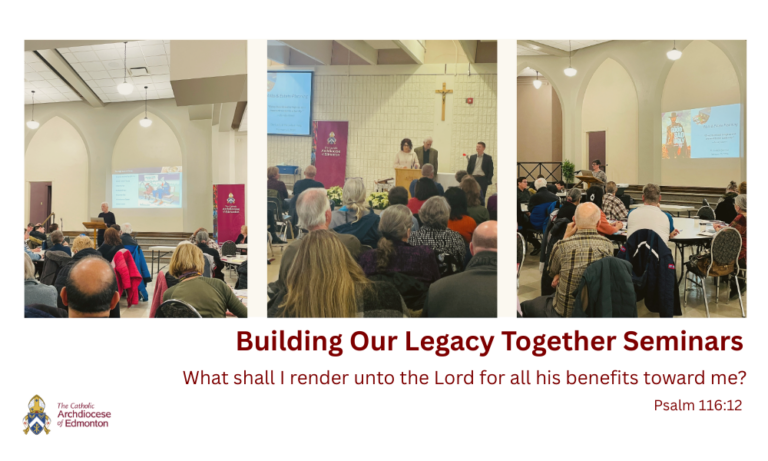Thousands of Indigenous Canadians from across Canada made the pilgrimage to Lac St. Anne for healing, worship and fellowship.
While the pilgrimage was abbreviated by two days due to heavy rainstorms, pilgrims say that the annual event touched them deeply and that the struggles with the storm highlighted the goodness and resilience of many people.
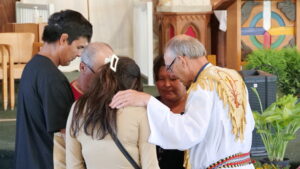
The pilgrimage was also a chance for pilgrims to gather these holy grounds where Pope Francis blessed the site during his penitential journey to Canada in 2022.
“We always come here for healing. . . [When the Pope came] it felt so emotional, said Bonnie, who has been coming to Lac Ste Anne for decades, including last year, when the Pope was visiting.
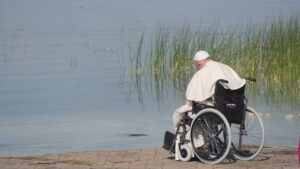
“He’s the main one, right? He traveled from far away, just to see us, to see our holy ground. It was an awesome experience.”
Bonnie and her family live in Black Lake, a Dene First Nation in northern Saskatchewan. They traveled more than 20 hours to attend the Lac St. Anne Pilgrimage.
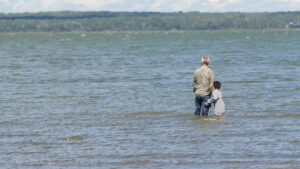
This year’s pilgrimage was cut short on July 25, due to a storm that flattened the tents of hundreds of campers and winds that were snapping trees in half. The last two days of the pilgrimage were canceled for the safety of the nearly 10,000 campers who were gathered at the pilgrimage site.
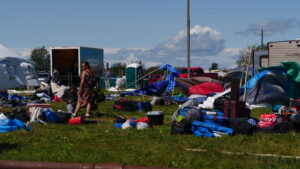
It is the first time in modern history that the pilgrimage has been canceled, with the exception of Covid-19 pandemic.
Bonnie said she and her family took tenting in torrential rains in stride.
“Well, we set up our tent really good. Back home, we go out camping, so we’re used to weathering a storm. We had it all set up good!”
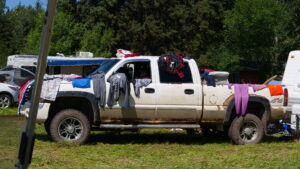
First called Wakamne (or “God’s Lake”) by the Alexis Nakota Sioux Nation who live on the west end of the Lake and Manito Sahkahigan (or “Spirit Lake”) by the Cree, the lake was called “Lac Ste Anne” by Rev. Jean-Baptiste Thibault, the first Catholic priest to establish a mission on the site. The pilgrimage grounds had been considered sacred by generations of local First Nations and it has become widely known as a place of healing.
Florence Large has been serving at the pilgrimage for decades. She and her husband, Frank, are from Saddle Lake Cree Nation, about 200 kilometers northeast of Edmonton.
Florence said the rainstorms at the pilgrimage brought about real-time healing between Indigenous people and non-Indigenous locals, when a local hotel owner, who is not Indigenous, opened his doors for rain-soaked campers who were looking for shelter.
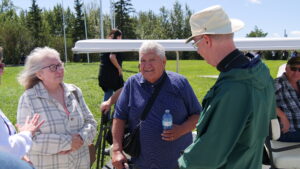
Just down the road from the pilgrimage, a hotel opened its doors to rain-soaked pilgrims in need of shelter.
“[The owner] just allowed the people to haul in their mattresses into all of the rooms. He just let people come in, even if they hadn’t bought any room. All the rooms were paid for, but there were more people, especially relatives, that needed a place to stay in the storm. So the place was packed,” said Florence.
“The owner is just so open, he is a good man. That’s reconciliation!”
Fr. Les Kwiatkowski is the pastor at Lac Ste. Anne parish.
“It was after midnight, when we could see the storm coming . . . people started coming to the church building for cover. Their tents were destroyed. So they came into the church for cover and many started going to Confession too,” Father Les said.
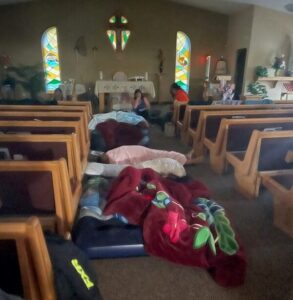
- Over 70 people took shelter in the Lac St. Anne church, where they slept on the floor and on the pews. Courtesy of Les Kwiatkowski.
Dry clothing and blankets were donated by local people and both the parish and the concession station were filled with hundreds of people, sleeping on the floor and sleeping on the pews.
“Those who had motorhomes or trailers, they invited people to come inside, if they only had tents,” shared Father Les, who oversaw the parish building, as people came in for shelter.
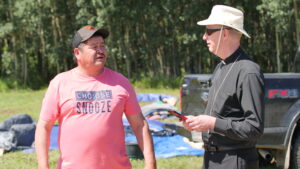
“One family put about 20 people in their motorhome, on the floor, wherever they could.”
Despite disappointment over the abbreviation of the pilgrimage, Father Les is confident that good things have already started to come of these unfortunate circumstances.
“All kinds of disasters bring us together. . . You can make plans but God has his own things to do! At the end of the day, we must accept God’s will and overall everybody is safe and this is all God’s protection!”
Jenny Connelly – Archdiocese of Edmonton

